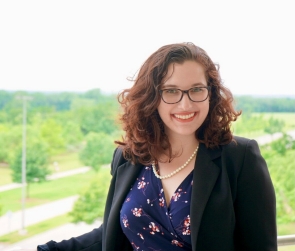Elizabeth H. Hurst
Postdoctoral Researcher
Dr. Hurst is an intercultural communication scholar whose research focusses on issues of social identity, political socialization, and adaptation. She has conducted research with a variety of diverse groups. Dr. Hurst approached social identity development in refugee orphans through a semiotic analysis of children’s drawings from that region. She is trained in ethnographic inquiry and has conducted field work and in-person interviews with a variety of groups, including international college students, rural college students, and coastal-community members. She is also trained in quantitative methods and has conducted multiple surveys and experiments exploring the effects of social identity and news framing on prejudice. Her work has also focused on media representations of minority and immigrant populations, where she has examined news framing and framing effects through a social identity framework. She has also worked on multiple applied projects, in which she examined community-wide risk assessments related to place-identities and meteorological events related to climate change. Dr. Hurst specializes in qualitative and quantitative text-analysis and utilizes a variety of methods in the examination of various texts, such as content analysis, domain analysis, discourse analysis, thematic analysis, grounded theory approaches, and constant comparative analysis. Dr. Hurst has taken a keen interest in applied research in which deliberative theories can be used as tools for social learning.
Beginning in August 2021, Dr. Hurst is a postdoctoral researcher working with Dr. Jack Friedman (CASR) and Dr. Daphne LaDue (CAPS) on a NOAA-funded project examining vulnerability knowledge and weather risk/hazard communication. Specifically, she is studying how vulnerabilities related to meteorological events can best be communicated and integrated into the daily operations of the National Weather Service. In her current research program, she seeks out ways in which she can improve community and organizational outcomes related to messaging and teaching others through social scientific inquiry.


